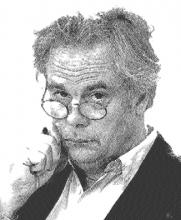You are here
Evaluating Barack Obama
Jan 12,2017 - Last updated at Jan 12,2017
President Barack Obama steps down at the age of 55. He will probably live, given his healthy lifestyle, until he is over 90. So what on Earth is he going to do for the next 40 years?
Realistically, we do not know and right now probably he does not know either. But one thing we can be sure of: as he writes his second autobiography in his very special prose, he will be critically re-evaluating every decision and policy change he made.
This is an honest man, if on a few occasions he failed to be. And we, the jury, try to be, if sometimes we fail, too.
What did he do right and what did he do wrong?
This week I look at his domestic policies, next week at his foreign policies.
When he came to power, the economy was in shambles, still attempting to recover from the worldwide fallout from the collapse of the Wall Street icon, the Lehman Brothers bank.
He dealt with the issues as a true follower of the greatest economist of them all, John Maynard Keynes, priming the pump with massive investment in roads and America’s rotting bridges.
He invested heavily in elementary, secondary and post-secondary schools.
He put $5 billion into early education, including Head Start.
He increased the grants programme that gave the opportunity to low-income students to go to college.
He raised the taxes on the wealthy right back to what they were before president Ronald Reagan began the Republican goal of cutting them and were continued by subsequent Republican presidents.
With much opposition to his “nationalisation” of Detroit’s bankrupt car companies, he bailed them out with low interest loans, which they later repaid.
This saved around 1.4 million jobs.
He made a deal with Swiss banks that permits the US to gain access to the records of criminals and tax evaders.
He ordered 65 executives who took bailout money to cut their own pay until they had repaid all of it.
He successfully persuaded Congress to pass the Dodd-Frank Act, the first significant crackdown in a generation on Wall Street’s power.
The Republicans in Congress fought him every inch of the way. Without their opposition, the benign impact on economic growth of Keynesian policies would have been much greater.
Despite that, the US grew faster than Europe, and unemployment is lower. The Europeans were, and still are, in hock to the counterproductive idea of “austerity”.
Top of the list of his social reforms is Obamacare, which made sure that 20 million poor Americans are eligible for good healthcare.
Again, without Republican opposition, the legislation would have been bolder.
President-elect Donald Trump has pledged to cut it back. However, if he does, he will face the wrath of the many low-income white folks who voted for him.
While he has enforced the old laws on drugs, he has not interfered with states that decriminalise the use of marijuana.
He used the clemency laws to address unfair prison sentences. He pardoned or commuted the sentences of 1,324 prisoners in the federal system — more than the total of the last 11 presidents combined.
With immigration it is a mixed bag.
He wanted a massive pro-immigrant reform, but was blocked by the Republicans.
Contradictorily, he expanded the deportation of those with minor and old convictions and detained entire families who were fleeing the massive gang violence in Central America.
He greatly expanded the extent of American parkland and, working closely with the Chinese, used his executive powers to enact bold regulations to curb greenhouse gas emissions.
He announced support for same-sex marriages and brought back federal financial support for birth control and abortion clinics.
Torture is prohibited, although none of those who practised it under president George W. Bush were arrested and tried.
He funded measures to limit homelessness and to cut down on families being foreclosed and evicted from their homes.
He fought for the successful passage of the Hate Crimes Prevention Act, which makes it a crime to assault anyone based on sexual orientation or gender identity.
He provided $20 billion to increase food stamps for the poor.
He fought the gun lobby with great tenacity, only to be defeated again and again, unable to overcome the lobbying of those who said they were pro life but also pro gun.
Before he goes, he needs to pardon Chelsea Manning and Edward Snowden who stood for freedom against the great machine of government spying.
“A man’s reach should exceed his grasp,” poet Robert Browning wrote, “or what’s a heaven for?”
Along with Obama himself, we have to ask the question: Could he have reached farther?













